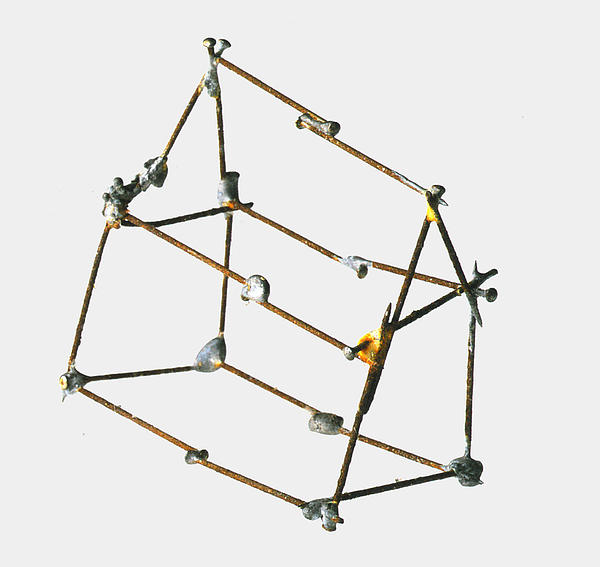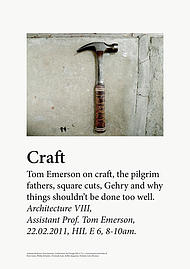Architecture viii
Bricolage

Architecture viii
Six turns in the architectural imagination
At the turn of the twentieth century, the mathematician and physicist Henri Poincaré defined two types of truth: scientific or ethical. A scientific truth is demonstrable while an ethical truth is felt and together these form the totality of human experience. In this lecture series we shall explore 6 themes which form part of that human experience and in particular architectural experience. They shall be of the ethical order but will stop to pick up and even challenge scientific, verifiable knowledge. We shall explore notions familiar to every architect but perhaps not sufficiently discussed: measure, failure, constraints, craft, bricolage and shapes. Together they will present one story through knowledge and the architectural imagination. They do not claim to construct a theory but rather ask certain questions about how the world is made and how the architect contributes to its unending experiment. They could be seen as 6 turns of the architectural imagination.
Submission
For this course you are asked to prepare your own seventh turn in the architectural imagination. You are to produce a short written or illustrated essay on a subject of your choice, a subject which you feel deserves more consideration in architectural discourse. You may either write an essay – of 1500 to 2000 words (in English or German) or taking inspiration from John Berger’s Ways of Seeing, produce a visual narrative, not unlike an illustrated lecture.
You should submit your title by end of week 4 and, unless it has been challenged by the chair, you should proceed with defining your term or terms and then develop your story.
The submission date is Tuesday 10 May. A selection of the best essays will be presented at the end of the course.
Irénée Scalbert on bricolage, Lévi-Strauss, Colin Rowe, Charles Jencks, Guiseppe Penone, Robinson Crusoe and other topics.
Architecture viii
Studio Tom Emerson
8 March 2011, hil e4, 8–10am
